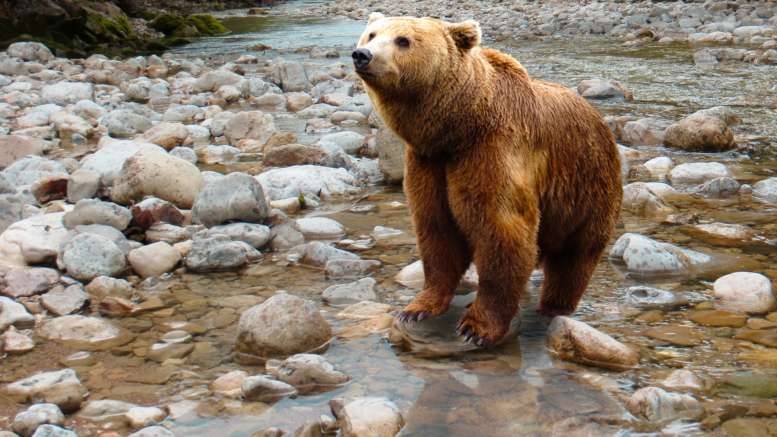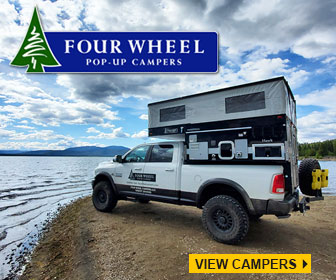If you’re going to be spending time outdoors in bear country, there are a few things you can do to protect yourself and your property or supplies from harm. Bear safety should not be scoffed at or taken lightly, as the consequences are not worth risking. Without fear mongering, backpacker.com cites that there have been 27 fatal bear attacks since 2000 in North America. While non-fatal bear attack statistics are hard to amass generally, the number of non-fatal attacks each year is almost certainly much higher than the number of reported fatalities. In any case, protecting oneself from bears need not be burdensome. Here’s what you can do to reduce the likelihood of an unpleasant bear-encounter when camping:
Proper Food Storage When Camping in a Campground
The National Park Service in the United States requires that all food must be stored in metal storage containers if available. If there are no metal storage containers at your campground, then it’s recommended you use your own bear container/canister. It’s also important to store food both day and night, as bears will sometimes enter a campground even if people are present. Don’t leave leftover food items or trash out around your campsite. Anything that could attract a bear should be disposed of.
Proper Food Storage When Backpacking
You can either hang your food up with a sack or use a bear canister. A bear canister is a small container which usually weighs around 2-3 lbs. and is used to store food and other fragrant goods.
To hang your food up you’ll need a few items: a bear bag, cord of some kind, a carabiner, and patience (seriously, it’s sometimes difficult to find suitable trees). Here’s a step by step video How to hang a bear bag PCT style. If you decide to carry a bear canister with you, make sure it’s densely packed, but consider leaving some space near the top to carry out garbage. When it’s time to cook your meals for the night, do not open your bear canister less than 50 feet away from where you’ve pitched a tent.
If you’re taking off from a trail head, don’t leave food and scented items in your car. In Yosemite National Park for example, bears regularly break into and destroy cars. I wonder if your insurance plan protects from bear break-ins? Possibly, but it’s not worth finding out. Either make sure to take all food and scented items with you, or store such items at the trailhead in food storage boxes.
A couple other tips: Don’t sleep in the same clothes that you cook in, and especially do not leave scented items in your tent (such as toothpaste), as these should be stored safely with your food.


